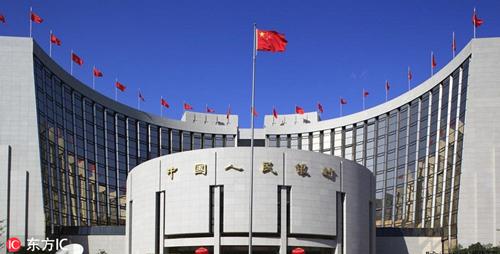Nation stands firm on monetary policy


View of the headquarters of the People's Bank of China, the central bank, in Beijing, on Nov 25, 2018. [Photo/IC]
The latest interpretation of China's monetary policy by the governor of the People's Bank of China, the central bank, demonstrates the country's firm stance in upholding a flexible, open and inclusive macroeconomic policy to foster high-quality growth, analysts from home and abroad said.
The country's monetary policy must be subject to timely fine-tuning in a flexible and moderate way to meet changing economic conditions and to counterbalance the cyclical pressures of the economy, said Yi Gang, the central bank's governor, in an article published late on Monday.
When the economy is overheated or asset price bubbles emerge, proper tools should be employed to gradually reduce potential risks and achieve a "soft landing", Yi wrote in China Finance, a magazine affiliated with the central bank.
On the contrary, when facing economic slowdowns or external shocks, monetary policy should react immediately to stabilize financial markets and strengthen public confidence, Yi said.
"Maintaining economic and financial stability is always the important target" of monetary policy, said Yi, who also vowed to continually deepen financial reforms and further open financial markets to foreign investors.
It was the latest reassurance from the country's macroeconomic policymakers on China's determination to uphold the principle and golden rule of openness and stability, experts said.
According to Agustin Carstens, general manager of the Bank for International Settlements, China appears to be in a good position to endure any possible financial storms, given its strong policy framework, large foreign exchange reserves and deleveraging efforts.
It is crucial for China to maintain its strong momentum, as it is a growth engine and a source of resilience for the global economy, Carstens said.
Carstens added that policymakers also need to remain alert and be prepared to take all necessary steps to manage the impact of global shocks.
In the China Finance article, Yi said that "financial opening-up should never stop". China's openingup policy has facilitated financial reforms, such as the inclusion of the yuan into the International Monetary Fund's special drawing rights.
The bottom line of China's monetary policy and its opening-up efforts, Yi said, is to ensure that financial services never experience sudden interruptions and to prevent systemic financial risk.
The State Administration of Foreign Exchange said on Tuesday that reforms will continue to foster an opening of the foreign exchange market and gradually achieve capital account convertibility.
China will provide a broader market for global investment and protect the rights of foreign investors, according to administration spokeswoman Wang Chunying.
"For the foreseeable future, although the external environment is complicated and uncertainty remains… new favorable factors are emerging to support further opening-up and a market-oriented regime," Wang said.
On Tuesday, the yuan hit its highest level in more than two months as the US dollar further weakened. The onshore yuan exchange rate closed 0.7 percent higher than it did on Monday to 6.8401 per dollar. The daily trading reference rate, or central parity, was 6.8939 per dollar on Tuesday, the highest since Sept 28 the biggest jump since June 1, 2017.
To build a more solid basis for opening of the capital account, the onshore yuan needs to be more free-floating and market-oriented, said MK Tang, a Goldman Sachs economist.
The key to assessing the potential of capital account liberalization is the extent to which market forces can be allowed in transactions, Tang said.







